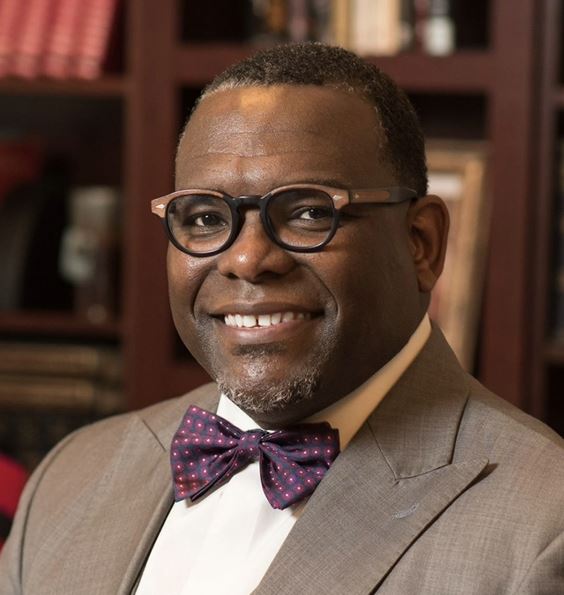Commentary on Jeremiah 23:23-29
The hunger for leadership has reached every sector of our society, including business, government, education, cultural institutions, and, of course, the church. Christians, along with everyone else, are looking for leaders. Why? Because no matter what’s happening around the world, leadership takes center stage. Kim Jong-un is leading his nation to the brink of war. A group of U. S. senators is directing their Senate compatriots to adopt new policies about illegal immigration, healthcare accessibility and educational affordability. Daily, the cable news talking heads either applaud or attack the leadership of former President Trump, and quickly pivot toward President Biden with the same reaction. Concern over leadership is everywhere, in the culture, in the church, and in Jeremiah 23.
The common theme running throughout Jeremiah 11-29 is the conflict between Jeremiah and the leaders of Judah. Jeremiah’s message from God was met with active hostility from the leaders in Jerusalem. The focus of Jeremiah 21-29, not surprisingly, is God’s coming judgment on these leaders who have rejected God’s word and sought to persecute, even kill, God’s prophet.
In the previous verses, Jeremiah refers to the leaders of the nation as “shepherds,” with the understanding that their responsibility was to look after and take care of the people under their authority. But with behavior more akin to a wolf than a shepherd, God, through His prophet Jeremiah, issues a “woe”. This seems to be a consistent pattern in the book of Jeremiah. In several places in the book of Jeremiah, leaders engage in behavior that is unrighteous, unjust, and unfair, and then inquire about what God thinks, as though God is uninformed. In Jeremiah 37, when Zedekiah asks, “Is there any word from the Lord?” Jeremiah says, “Yes, you will be delivered into the hands of the king of Babylon.” This was a more descriptive version of “woe”. Perhaps that’s the word and warning for contemporary leaders, both civil and religious: “woe”. There’s an ever-increasing gap between the haves and the have-nots—“woe”; blatant disregard for the least, the last and the looked over —“woe”; preaching focused on the gaining of gifts rather than the giving of grace—“woe”; preaching driven by cash and cars rather than care and concern—“woe”.
In verses 9-27, the text offers three significant moves worthy of proclamation. To begin, the writer gives us God’s answer. How could a prophet confuse his own words with God’s word? How could a prophet fail to speak condemnation to sinful, covenant-breaking situations? God doesn’t leave us to assert or assume, but instead details and denounces the sins of false prophets and priests: (1) false prophets and priests broke God’s heart and distressed His true prophet, (2) filled the land with adultery, (3) misused their power, (4) were profane, unclean, corrupt, and godless, (5) guilty of idolatry and hypocrisy, (6) preached deceptive messages, and (7) ministered under false authority. It’s important to note that the presence of God is closely associated with the word of God. To encounter God is to encounter God’s word; likewise, to encounter God’s word is to encounter God. These false prophets, who claim to be speaking for God, had not been in the presence of God; thus, they knew neither God nor the word of God. It’s bad enough to ignore the word. Worse is trying to replace the word you’re your words. “Woe.”
The next thing we glean from the text is God’s authority. In response to their wickedness and waywardness, the Lord stakes the claim that God is the only true authority. God alone had the right to say who could preach God’s Word and minister to God’s people. Those who just went, as opposed to being sent, were wholly unauthorized. Their call was for themselves. There was no divine commission, yet they went forth with false messages. And the caution for all those who would dare speak for God is that without divine power there is no productivity. The result of powerless proclamation is always the absence of repentance. So why did these “false prophets and priests” proclaim a message that was so contrary to the true word of God? What did they deem more important than authority? Affirmation.
Likewise, the current “tastes” of our culture and the “political correctness” required for public dialogue today often pressure us to modify, adapt, and distort the word of God to fit in. However, do not miss the end of this passage from Jeremiah. God declares that those who speak falsely in God’s name will be forgotten.
Lastly, we see God’s awareness. God is present everywhere, at all times, at the same time. God is inescapable. God cannot be circumscribed. God is not a localized deity who can be avoided. God is both immanent and transcendent, omniscient, and omnipresent. An omnipresent and omniscient God cannot be deceived. God saw what the false prophets attempted to hide and heard the lies they told. So how can we be sure that we are accurately proclaiming the word of God? Jeremiah 23 connects being in the presence of God and encountering the word of God. The two are inseparable. To enter the presence of God, we must embrace the word of God, but only as we experience the presence of God will we truly know the word of God.


August 14, 2022